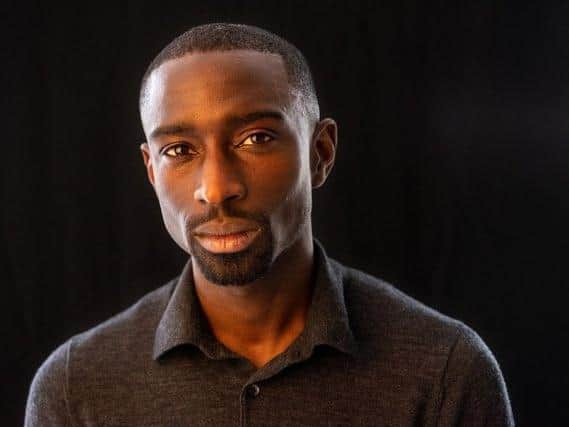Hull teacher Jeffrey Boakye’s book explores modern Black British history through music


Music is a universal language – it can break down barriers and bring people together in greater understanding. That makes it the perfect prism through which to investigate some difficult and challenging issues.
This is exactly what a new book from Hull-based teacher and author Jeffrey Boakye sets out to do. Musical Truth: A Musical History of Modern Black Britain in 28 Songs, published this month by Faber, is structured around a playlist of 28 songs presented chronologically from 1948’s London is the Place for Me by Lord Kitchener right up to Jords’ 2020 hit Black and Ready.
Advertisement
Hide AdAdvertisement
Hide AdThe songs in between include some iconic chart toppers such as Electric Avenue by Eddy Grant, Ghost Town by the Specials, Neneh Cherry’s Buffalo Stance, Soul II Soul’s Back to Life (However Do You Want Me), Stormzy’s Vossi Bop and, of course, as alluded to in the book’s title, Musical Youth make an appearance with their 1982 hit Pass the Dutchie.
Each song is connected with a pivotal event or significant period in Black British history and Boakye provides thoughtful and measured social, political and historical analysis on questions of race, identity, culture – and never shies away from the hard truths and often upsetting facts about what it means, and has meant, to be Black in Britain.
“I have written on issues surrounding race, Black British history and culture but what I hadn’t done before is targeted a younger generation,” he says. “As a teacher I had noticed that there was very little out there for young people to engage with these issues. The music element came in because I wanted to avoid being too polemic or academic and using songs seemed like a good way in.”
Racism, discrimination, marginalisation and police brutality are all dealt with head on. There is one chapter that stands alone, and is not associated with a song, on the Stephen Lawrence case with the heading Interlude: A Moment of Silence (1993).
Advertisement
Hide AdAdvertisement
Hide AdThe book is specifically aimed at 11 to 14-year-olds, high school students in KS2 and KS3, but Boakye hopes it will appeal to a wider audience, especially given the ongoing debate around the undeniably white and Eurocentric nature of our school history curriculum.
“I was very much aware that, to be blunt, the things I explore in the book haven’t been taught to children but they haven’t been taught to adults either, so I would hope the book will be accessible to everyone.” Selecting which songs to include took some time. As a passionate music lover, Boakye had many in his own personal playlist to choose from.
“Initially I went with the heart rather than the head so I started with songs that had made an emotional impact on my life and which had helped to shape me as a person – that turned out to be quite a long list,” he says, laughing. “I knew that I wanted to address certain moments in history, to put them under the microscope, so I had to then find songs that were connected with those events. A lot of the most powerful and key songs in pop cultural history have come out of moments of change. Music genres are generally reacting to something – even if they are not overtly critical, they speak to what is happening socially and politically at the time. We have got to the point now where pop music has been around for nearly 70 years so everything new that is released has a really rich heritage – it is a conversation that goes through time.”
Music has always been an important and integral part of Boakye’s life. Born in London in 1982 to Ghanaian parents, he was brought up in Brixton, surrounded by music. “Music has been crucial to my sense of self because it is a realm in which you can explore the world,” he says. “Growing up in Brixton, I got to know West Indian culture through music – it was an all-encompassing cultural oxygen. To be honest my whole world view has been based on the music I heard around me. All these stories and narratives can be expressed through song and music. I was lucky to have lots of music around me – my parents loved it and so did my two older sisters.”
Advertisement
Hide AdAdvertisement
Hide AdBoakye’s motivation for writing the book is to encourage discussion and debate in order to effect change. “It is all about conversations,” he says. “A lot of the things I refer to in the book have been talked about for a long time; if you listen to those tensions, it is obvious the conversation we need to have. What I am really hoping is to provoke and challenge and spark that conversation. Change can only happen when people are listening to each other.”
Musical Truth, published by Faber, £12.99 is out now.
You can find the playlist at musicaltruthplaylist.co.uk